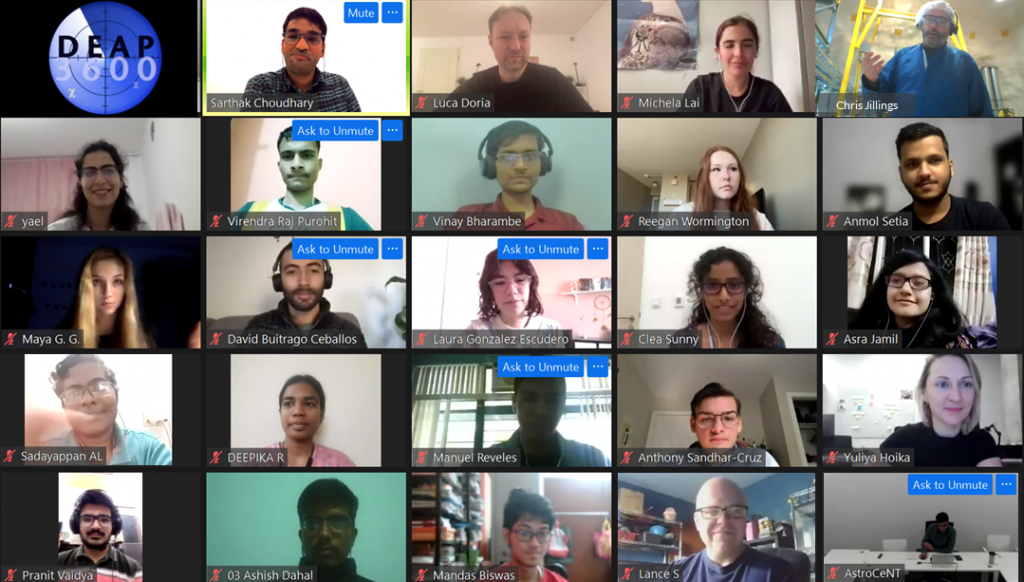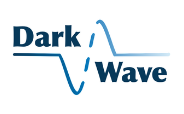
Views: 10

Views: 10
On November 4, a few days after the Dark Matter Day, representatives of DEAP-3600 and AstroCeNT (NCAC PAS) conducted a master class dedicated to the study of dark matter. The concept for the youth workshop was conceived by DEAP-3600 staff member Dr. Michela Lai, who has led a couple of such workshops before. For the repetition of the 2022 seminar, the organizers set the goal of reaching a wider and more international audience. By the end of August, registration was available to undergraduate students from all over the world.
“We feared, perhaps, society is too tired of online meetings and we wondered whether anyone would even want to spend another 4 hours staring at their computer screens”, says one of the workshop organizers Sarthak Choudhary. “But the opportunity to bring incredible scientific work taking place in an underground laboratory in Canada to an international audience was just too lucrative to pass. This fear was later quelled as we received more than 71 registrations for the Master Class. We also received a couple of registrations from high school students, which we had to turn down since the content of Master Class was tailored for undergraduate students. We received registration from students residing in 10 countries in 4 continents including Austria, Canada, Egypt, France, India, Italy, Israel, Japan, and USA. This came with its own challenge as we now had to prepare a schedule suitable for participants whose time zones differ by as much as 14 hours”.
The online format gave the organizers freedom to involve collaborators residing on different sides of the Atlantic. The lecture on Dark Matter search was delivered by Dr Luca Doria, Johannes Gutenberg University of Mainz, Germany. The hands-on session was conducted by Dr Michela Lai, University of Cagliari, Italy. For the last session “Ask a Researcher”, Prof. Chris Jillings joined the workshop from his workplace in SNOLAB, an underground laboratory situated 2 km beneath the ground in the Creyton mines in Sudbury, Canada. With Prof Jillings, students got to take a look at the DEAP-3600 systems over the video conference call. Prof. Jillings’s session quickly became very engaging with students asking questions on a range of topics from beyond standard model physics to personal experience working in a laboratory 2 km below the Earth’s surface.
In conclusion, we got a very enthusiastic, curious and engaged audience which made the DEAP-3600 Master Class a success. The organizers are expressing gratitude towards Prof. Marcin Kuźniak for providing the Zoom meeting room for this Master Class, to DEAP Collaboration for supporting the Master Class, to European Comission for support through the Horizon 2020 project DarkWave and to all participants.
